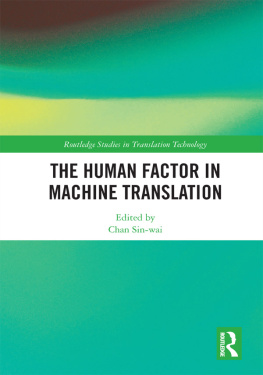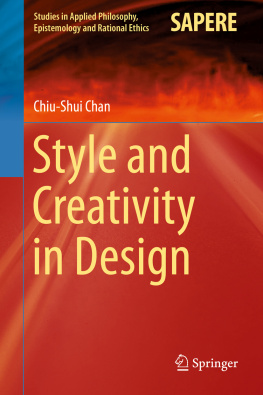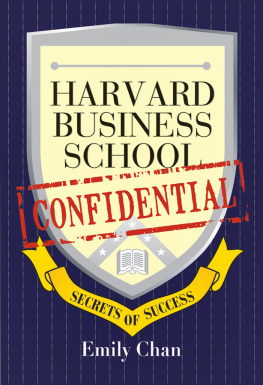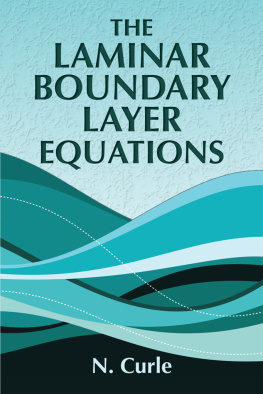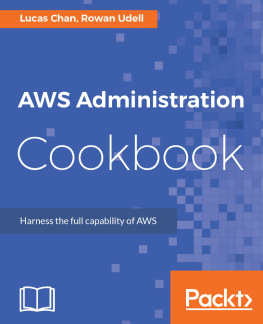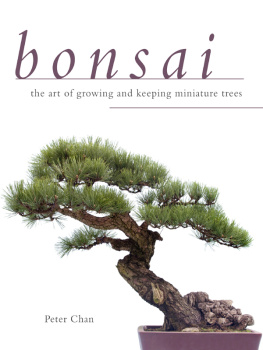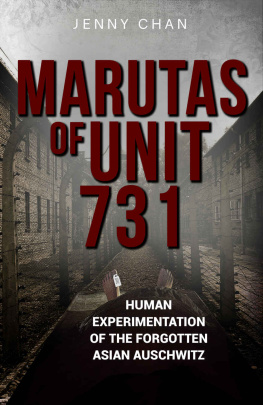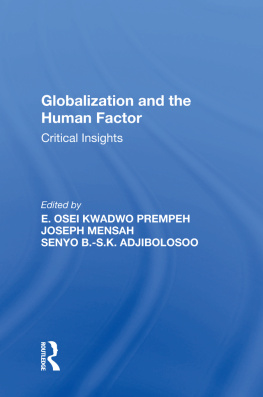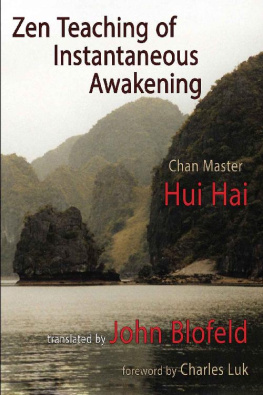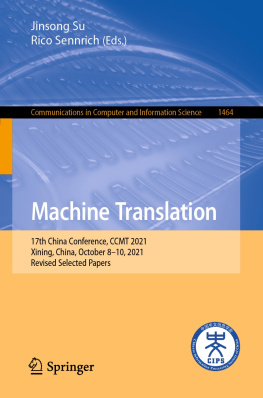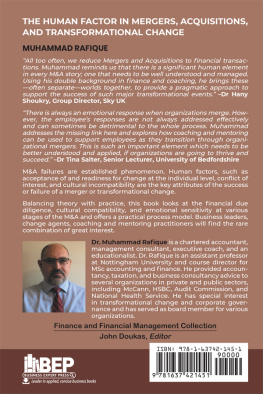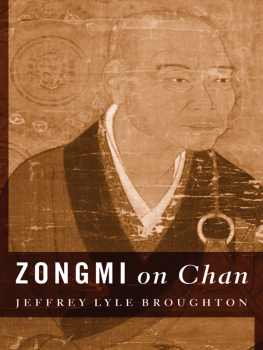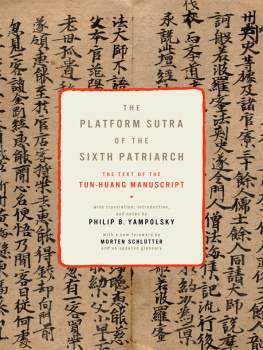Chan - The human factor in machine translation
Here you can read online Chan - The human factor in machine translation full text of the book (entire story) in english for free. Download pdf and epub, get meaning, cover and reviews about this ebook. City: London, year: 2018, publisher: Routledge, Taylor & Francis Group, genre: Home and family. Description of the work, (preface) as well as reviews are available. Best literature library LitArk.com created for fans of good reading and offers a wide selection of genres:
Romance novel
Science fiction
Adventure
Detective
Science
History
Home and family
Prose
Art
Politics
Computer
Non-fiction
Religion
Business
Children
Humor
Choose a favorite category and find really read worthwhile books. Enjoy immersion in the world of imagination, feel the emotions of the characters or learn something new for yourself, make an fascinating discovery.
- Book:The human factor in machine translation
- Author:
- Publisher:Routledge, Taylor & Francis Group
- Genre:
- Year:2018
- City:London
- Rating:4 / 5
- Favourites:Add to favourites
- Your mark:
- 80
- 1
- 2
- 3
- 4
- 5
The human factor in machine translation: summary, description and annotation
We offer to read an annotation, description, summary or preface (depends on what the author of the book "The human factor in machine translation" wrote himself). If you haven't found the necessary information about the book — write in the comments, we will try to find it.
Chan: author's other books
Who wrote The human factor in machine translation? Find out the surname, the name of the author of the book and a list of all author's works by series.
The human factor in machine translation — read online for free the complete book (whole text) full work
Below is the text of the book, divided by pages. System saving the place of the last page read, allows you to conveniently read the book "The human factor in machine translation" online for free, without having to search again every time where you left off. Put a bookmark, and you can go to the page where you finished reading at any time.
Font size:
Interval:
Bookmark:

Machine translation has become increasingly popular, especially with the introduction of neural machine translation in major online translation systems. However, despite the rapid advances in machine translation, the role of a human translator remains crucial. As illustrated by the chapters in this book, man-machine interaction is essential in machine translation, localisation, terminology management, and crowdsourcing translation. In fact, the importance of a human translator before, during, and after machine processing, cannot be overemphasised as human intervention is the best way to ensure the translation quality of machine translation. This volume explores the role of a human translator in machine translation from various perspectives, affording a comprehensive look at this topical research area. This book is essential reading for anyone involved in translation studies, machine translation or interested in translation technology.
Chan Sin-wai is Professor in the School of Humanities and Social Science, The Chinese University of Hong Kong, Shenzhen. He was formerly Professor and Chairman of the Department of Translation, The Chinese University of Hong Kong. He was also Director of the Master of Arts in Computer-aided Translation Programme and Director of the Centre for Translation Technology. He is Visiting Professor of Harbin Engineering University, Visiting Professor of Beihang University, Visiting Professor of Dailian Maritime University, and was a member of the Translation Technology Committee of the International Federation of Translators (FIT).
Series Editor: Chan Sin-wai
The Future of Translation Technology
Towards a World without Babel
Chan Sin-wai
The Human Factor in Machine Translation
Edited by Chan Sin-wai
For more information on this series, please visit www.routledge.com/series/RSITT
Edited by Chan Sin-wai

First published 2018
by Routledge
2 Park Square, Milton Park, Abingdon, Oxon OX14 4RN
and by Routledge
711 Third Avenue, New York, NY 10017
Routledge is an imprint of the Taylor & Francis Group, an informa business
2018 selection and editorial matter, Chan Sin-wai; individual chapters, the contributors
The right of Chan Sin-wai to be identified as the author of the editorial material, and of the authors for their individual chapters, has been asserted in accordance with sections 77 and 78 of the Copyright, Designs and Patents Act 1988.
All rights reserved. No part of this book may be reprinted or reproduced or utilised in any form or by any electronic, mechanical, or other means, now known or hereafter invented, including photocopying and recording, or in any information storage or retrieval system, without permission in writing from the publishers.
Trademark notice: Product or corporate names may be trademarks or registered trademarks, and are used only for identification and explanation without intent to infringe.
British Library Cataloguing-in-Publication Data
A catalogue record for this book is available from the British Library
Library of Congress Cataloging-in-Publication Data
A catalog record for this book has been requested
ISBN: 978-1-138-55121-3 (hbk)
ISBN: 978-1-315-14753-6 (ebk)
Typeset in Galliard
by Apex CoVantage, LLC
CHAN SIN-WAI
LYNNE BOWKER AND JAIRO BUITRAGO CIRO
SYLVIANE CARDEY
CHAN SIN-WAI
JIANG CHENG AND WANG MIN
QIAN DUOXIU
OLIVIA KWONG OI YEE
KARA WARBURTON
XU BIN
SARAH NDANU M. NGESU
MOZHGAN GHASSEMIAZGHANDI AND TENGKU SEPORA TENGKU MAHADI
CECILIA WONG SHUK MAN
CAO YIXIN
Lynne Bowker is Full Professor at the School of Translation and Interpretation at the University of Ottawa, and is also the Vice Dean of the Faculty of Graduate and Postdoctoral Studies.
Cao Yixin is a PhD candidate at the Department of Linguistics and Translation, City University of Hong Kong. She obtained her BA and MA degrees from Sun Yat-Sen University, China.
Sylviane Cardey is Senior Member of the Institut Universitaire de France and Tenured Professor of Linguistics and Natural Language Processing in the University of Franche-Comt, Besanon, France.
Chan Sin-wai, is Professor at the School of Humanities and Social Science, The Chinese University of Hong Kong, Shenzhen. To date, he has published 52 books in 64 volumes.
Jairo Buitrago Ciro is a student on uOttawas Master of Information Studies programme.
Mozhgan Ghassemiazghandi is a PhD candidate in translation studies at the University Sains Malaysia. She works as a freelance translator for a number of international organizations and private clients.
Jiang Cheng, is Director of the Department of English for EST Translation and Vice Director of the MTI Center of the University of Shanghai for Science and Technology.
Olivia Kwong Oi Yee is Associate Professor at the Department of Translation, The Chinese University of Hong Kong. Her research interests span many bilingual and pan-Chinese language processing issues.
Tengku Sepora Tengku Mahadi is Full Professor and Dean of the School of Languages, Literacies and Translation at the University Sains Malaysia. She lectures in translation theories and practice.
Sarah Ndanu Mwangangl Ngesu is Lecturer at the South Eastern Kenya University. She has taught at the South Eastern Kenya University and the Kenyatta University.
Qian Duoxiu is Associate Professor and Vice Dean of the School of Foreign Languages and Head of the Department of Translation and Interpretation of Beihang University, Beijing, China.
Wang Min obtained her BA degree from Nanjing University of Science and Technology in 2011 and MTI degree from University of Shanghai for Science and Technology in 2015.
Kara Warburton was the lead terminologist for IBM for 15 years and is a recognized expert in terminology management. She has taught terminology management in professional workshops and universities.
Cecilia Wong Shuk Man taught at the City University of Hong Kong, Hong Kong Polytechnic University, and the Department of Translation of The Chinese University of Hong Kong (part-time).
Xu Bin is Associate Professor and Director of the English Department of the School of Foreign Languages at Shandong Normal University. He conducts research on translation studies and computer-aided translation.
Chan Sin-wai
Despite the rapid advances of translation technology, the human factor in machine translation is as important as ever. This is very much in evidence when we study all the chapters in this volume.
The first chapter is entitled Localizing Websites using Machine Translation: Exploring Connections between User eXperience and Translatability by Lynne Bowker and Jairo Buitrago Ciro, both of the University of Ottawa, Canada. UX or User eXperience is concerned with the user-centred design of a website: it focuses on the total subjective experience of the user and on whether the site meets the users needs. Questions include whether the site is easy to use, attractive, and appropriate. Since the web is a multimedia platform, UX often focuses on visual aspects of the site (e.g. font, icons, colours, navigation). Yet, much web content is text-based, and there has been some effort to consider text as part UX. For example, some organizations produce style guides for content creators that suggest the particular tone and voice that should be adopted to appeal to site users. While UX guidelines aim to make web content engaging, other types of guidelines may also come into play. For instance, as organizations increasingly engage in website localization, controlled language guidelines may be applied to ensure that text can be more easily translated, typically by a machine translation system. The question of whether UX and translatability guidelines are compatible or in conflict becomes increasingly relevant, particularly when it comes to balancing time, cost, and quality. This chapter reports on a multilingual recipient evaluation of web content that has been created according to two different sets of guidelines, and then translated using machine translation. The results indicate that there are some areas where the two sets of guidelines are compatible, but other areas where they are in conflict.
Font size:
Interval:
Bookmark:
Similar books «The human factor in machine translation»
Look at similar books to The human factor in machine translation. We have selected literature similar in name and meaning in the hope of providing readers with more options to find new, interesting, not yet read works.
Discussion, reviews of the book The human factor in machine translation and just readers' own opinions. Leave your comments, write what you think about the work, its meaning or the main characters. Specify what exactly you liked and what you didn't like, and why you think so.

